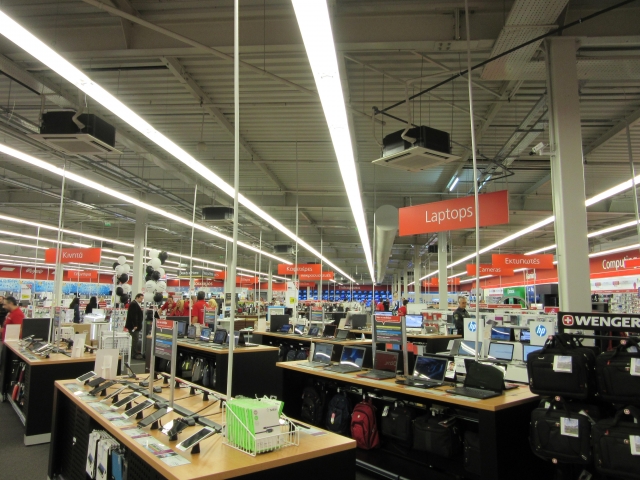The first occurrences of shortages in imported products and raw materials in the Greek market are already a fact, as reported by today's issue of the Greek daily Kathimerini. They are due to the inability of Greek companies to make advance cash payments to cover the total cost of their orders. This requirement of foreign suppliers appeared again in mid-December 2014, when it became clear that Greece was proceeding to early elections. It is still in force now and is becoming even more explicit because of the following two reasons: the protracted negotiations between the Greek government and the lenders on the one hand and the gradual loss of liquidity of the Greek economy on the other. Many businessmen say that today's market situation is even worse than in 2012.
In statements to the newspaper, some Greek market players point out that there are already shortages of mechanical equipment and machinery as well as of some luxury goods, such as famous Belgian beer. Difficulties are also reported in the import of chemical products in the form of raw materials and end products, which causes problems in the production of fertilizers and pesticides.

According to the publication, foreign suppliers do not facilitate even reliable customers in terms of payments and this has a negative impact on other industries. "A number of tourism companies wanted to renew their equipment ahead of the new season but now face a very serious problem," said Ioannis Papageorgakis, president of the Athens Association of Commercial Representatives and Distributors.
President of the Chamber of Commerce in Piraeus Vassilis Korkidis argues that the requirement for prepayment of orders is not a "whim" of suppliers from a specific country. The most serious problems are reported in business transactions with German, Danish, Swiss, and now with US, companies. In contrast, Chinese suppliers are not pressing their customers so much, at least for now.

Greek importers have problems even when foreign suppliers accept their letters of guarantee. This is due to the fact that as a result of the reduction of company deposits and of the difficult financial situation of many of them (mostly medium-sized companies), banks have reduced the number of letters of guarantee to about 30-40 percent. There are also cases in which suppliers accept letters of guarantee only if they are issued by foreign banks.
Vassilis Korkidis believes that, after the suspension of commercial loans, it will take about 4-5 billion euro in cash in order for supply to continue. If the situation in the country remains the same over the next four months, the prices of industrial goods, fuel, food and medicines will possibly increase. This will be the result not only of reduced supply, but also of the fact that the inability to issue letters of guarantee will drive Greek companies to make orders for smaller amounts, which will increase transportation costs.
Such a turn of events will cause an unequal fight between Greek and multinational companies, as they are funded by parent companies abroad.